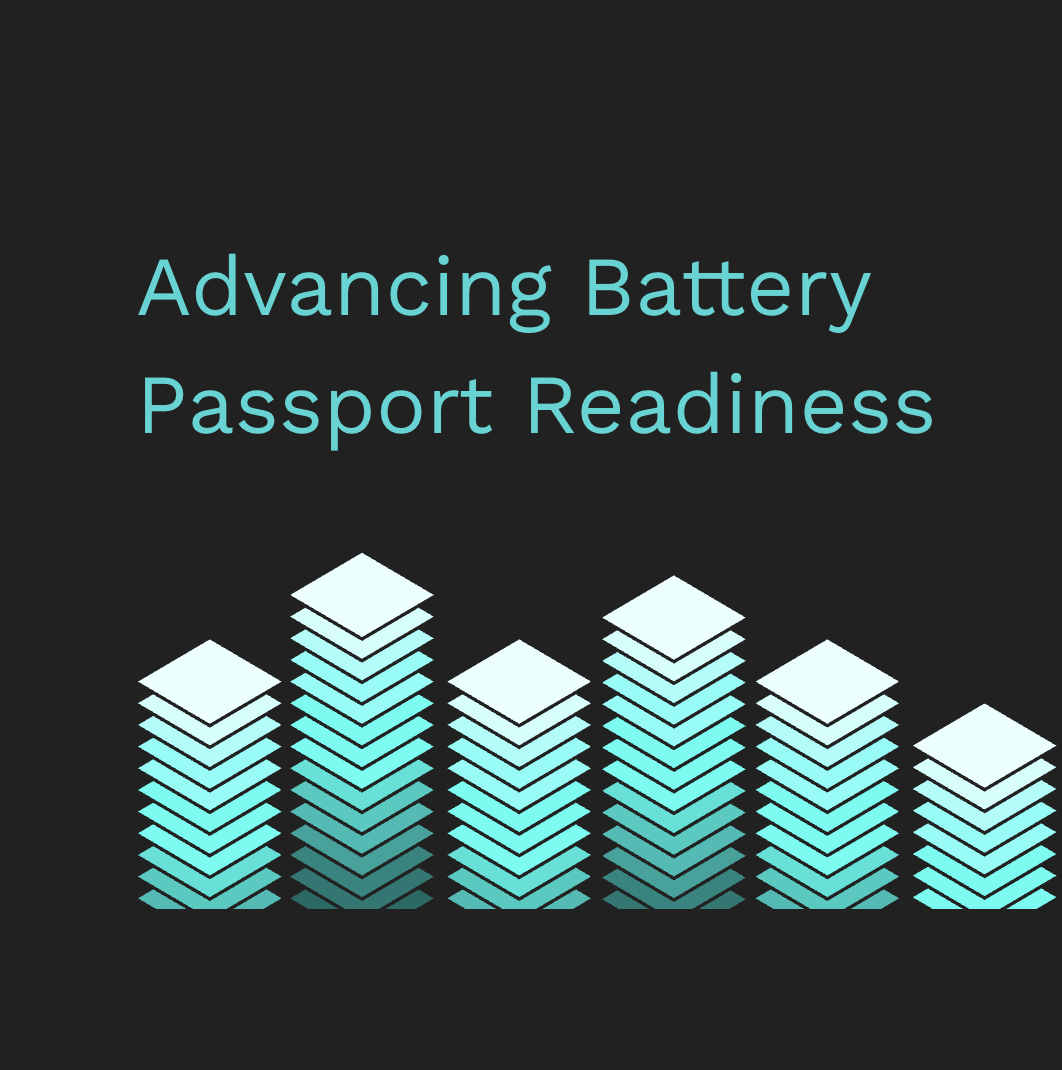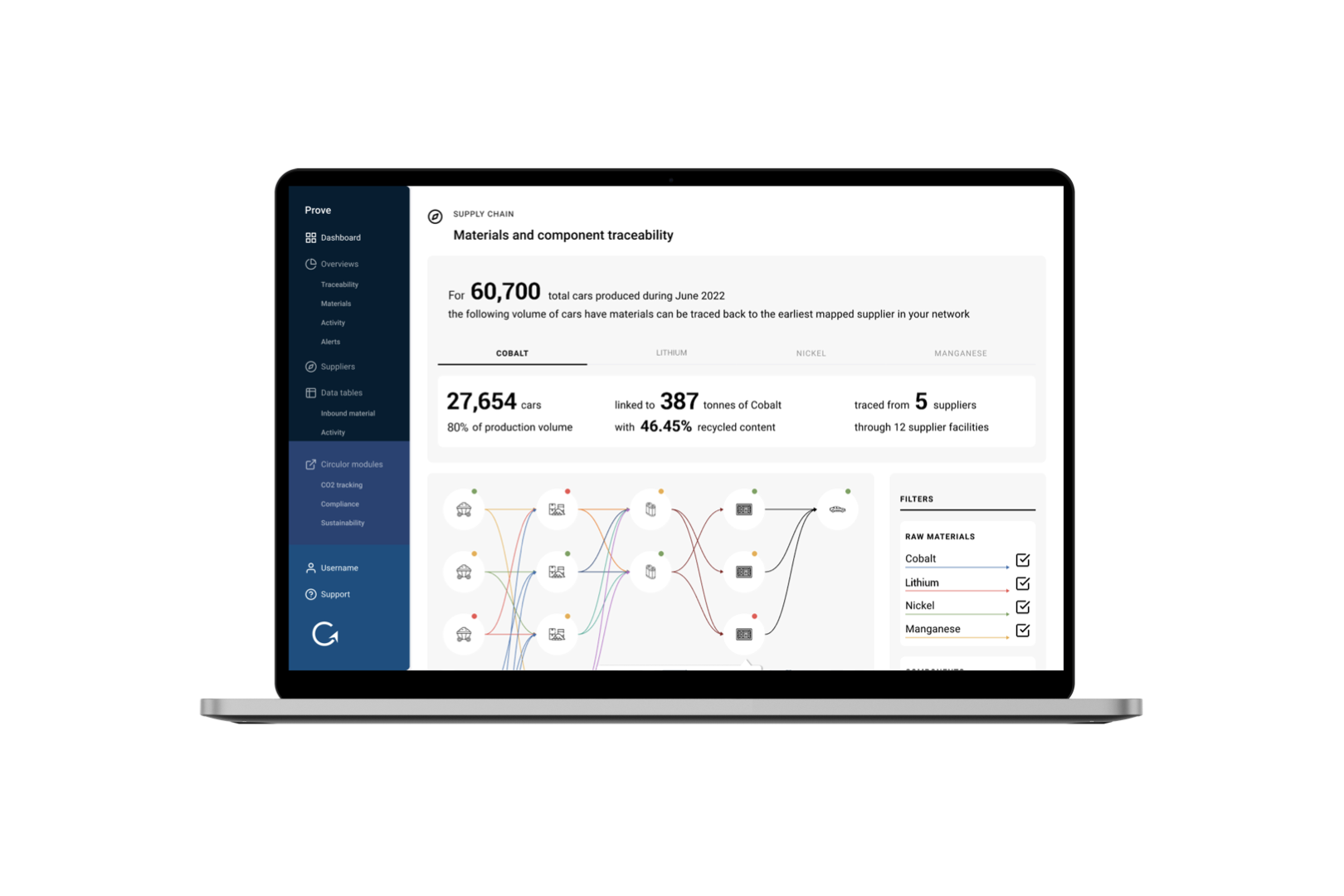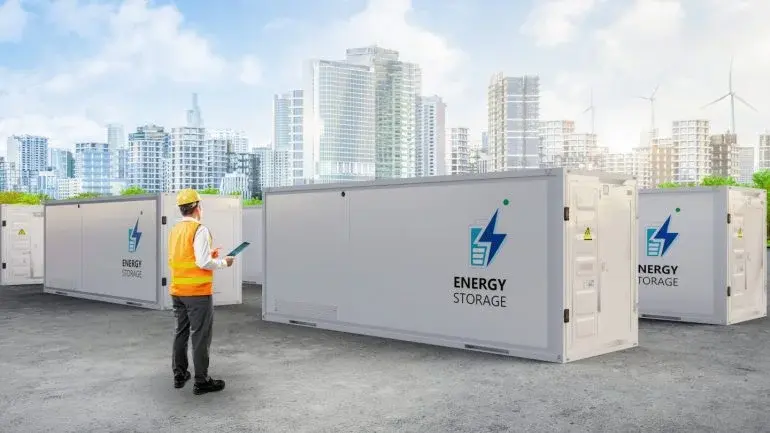
24.04.2024
News
April 2024 Newsletter: Beyond compliance – the strategic value of Digital Product Passports
However, although regulation is the driving force, the benefits of DPPs extend beyond compliance, providing advantages to organizations right across the supply chain. Earlier this month the Battery Pass Consortium published a study on The Value of the EU Battery Passport for batteries highlighting the exponential benefits, including the strategic opportunities for businesses to generate value, foster digital and green markets, and adopt sustainable business models.
While batteries have been prioritized as one of the first industries legally required to provide DPPs by February 2027, other industries such as iron, steel, aluminum and electronics are set to follow closely behind.
Organizations abstaining from adopting DPPs may face legal action and reputational damage, with consumers opting for products offering supply chain transparency.
So, the addressable action then becomes ‘how’ to get started with implementing a DPP solution, which must include dynamic as well as static data to achieve the sustainability and circularity objectives across these industries. Read more on our blog here.
The DPP represents more than just an idea; it's a groundbreaking initiative to achieve essential sustainability and circular economy goals. By proactively embracing DPP compliance, manufacturers play a role in fostering a future that's both transparent and environmentally responsible.
We look forward to continuing to bring you these global insights here, on circulor.com and LinkedIn. More on the latest global traceability trends below.
What we’re reading
New US funding aimed at boosting Biden’s climate agenda
Not only is the Energy Department investing $6 billion in 33 projects to cut carbon emissions from heavy industries including metals and cement, marking a major step in Biden's climate agenda, the US Government has also announced a $4 billion tax credit program to support over 100 clean energy projects across 35 states. Aimed at accelerating domestic manufacturing, this latter initiative offers a 30% investment tax credit, prioritizes job standards and supports the climate, supply chain, and clean energy goals of the current Administration.
Volvo Cars already ahead of their EU 2025 car CO2 targets
The car CO2 regulation in Europe has significantly cut emissions from new vehicles by 28% since 2019. In 2025, the next stage of the regulation comes into force with a 15% reduction compared to the emissions baseline in 2021. Analysis shows that Circulor customer Volvo Cars have already met their EU 2025 car CO2 targets, setting an important precedent for the industry.
Japan unveils draft sustainability reporting standards
ESGtoday report the Sustainability Standards Board of Japan(SSBJ) (SSBJ) has released new exposure drafts for proposed standards aligning with the IFRS Foundation International Sustainability Standards Board (ISSB). These drafts signal potential mandatory sustainability reporting requirements for Japanese listed companies, building on recent regulatory moves from the Financial Services Agency (FSA), requiring all listed companies to include a sustainability-related information section in annual filings, covering governance, risk management, strategy, and targets.
Inaugural standalone facilities in the US for LG Energy Solution
LG Energy Solution's new $5.5 billion battery production complex in Arizona, scheduled for completion within two years, will house North America's first standalone facilities for round cell manufacturing and energy storage system production. The facility will utilize lithium iron phosphate chemistry for energy storage systems and is expected to produce an average annual capacity of 53 gigawatt-hours, with production set to start in 2026.
Benchmark warns of increased volatility in raw material prices
Benchmark states that while many battery raw material markets are currently in surplus, by the end of the decade all of these - lithium, nickel, cobalt, graphite, etc. - are expected to go through a period of deficit. Oversupply has sent prices of critical battery materials lower, so as economies across the globe rush to secure critical battery material supplies, the need for increasing government support, such as the CRMA, is paramount.
What we’re sharing
Navigating the EU Battery Regulation with PROVE
The EU's Battery Regulation marks a groundbreaking regulatory step, positioning Europe at the forefront in fostering a sustainable, secure, and circular battery economy. Compliance brings extensive benefits across the battery value chain. Circulor's PROVE platform serves as a vital tool to ensure regulatory compliance and manage supply chain risk. Learn more about Circulor's solutions for navigating the EU Battery Regulation in our latest blog. Read more.
Transparency is key in balancing growth with ESG
Last year, Deloitte and Circulor collaborated on a blog, stressing the vital role of supply chain traceability in leveraging the opportunities of Europe's Critical Raw Materials Act (CRMA) – which will soon come into force. Compliance with the regulation's standards is crucial for securing Europe's clean energy economy, necessitating organizations to track material provenance and flow in their supply chains. Enhanced traceability offers greater visibility, upholding environmental standards while improving the EU's access to critical raw materials. Read more.
Circulor - providing credible insights and proof of recycled content volumes
Manufacturers, particularly battery producers, face requirements to demonstrate higher levels of recycled content in their products, as mandated by regulations such as the EU Battery Regulation. Compliance entails understanding supply chain actors, material origins, and recycled content. Circulor offers the ideal material traceability solution to assist with this process. Read more.
9% reduction in greenhouse gas emissions per car sold for Polestar
Circulor customer Polestar has published their 2023 Sustainability Report outlining their progress to eliminating emissions from their vehicles. Since teaming up with Circulor in 2021, Polestar has expanded its scope of blockchain traced risk minerals, from Cobalt and Mica in Polestar 2, to also include Lithium and Nickel for Polestar 3, setting a transparency precedent for the automotive industry. The partnership also includes carbon tracking. Read more.
The unquestionable value of the battery passport
Battery passports extend strategic benefits beyond compliance, offering opportunities for businesses to create value, gain competitive advantages through responsible sourcing, and adopt circular business models. A study by Battery Pass, which Circulor was involved in, highlights both technical guidance as well as key advantages, including efficient traceability and emissions reduction. Read more on Circulor's Battery Passport solution.






![Acculon RA Circulor - website image.001[44].png](/_next/image?url=https%3A%2F%2Fdecisive-wonder-fa24533282.media.strapiapp.com%2FAcculon_RA_Circulor_website_image_001_44_2720fb315d.png&w=1920&q=75)



